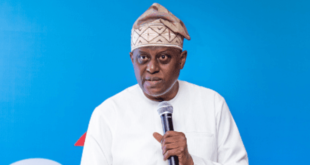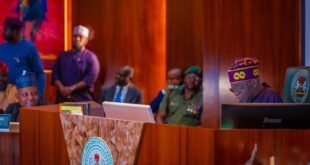David Lammy’s whirlwind first trip as foreign secretary, organised at short notice, is not aimed at achieving immediate results or breaking new ground.
It’s all about perception: the emergence of a vigorous new administration, determined to get going now, full of goodwill towards some of the UK’s most important partners.

After an evening spent with his German counterpart, Annalena Baerbock (the pair found time to watch a few minutes of England’s Euro quarter-final), Mr Lammy’s tour moved on to the bucolic surroundings of the country estate of Polish Foreign Minister Radoslaw Sikorsky.
After a couple of hours of talks, we got back on the plane for a short flight north to one of NATO’s newest members: Sweden.
Why Germany, Poland and Sweden?
Partly because of Ukraine. Along with Britain, all three countries play a major role in supporting Kiev’s war effort. With new Defence Secretary John Healey on the ground in Odessa, Prime Minister Sir Keir Starmer’s government is keen to underline that the UK’s commitment to Ukraine will remain rock-solid.
After a meeting with President Zelensky and his counterpart, Defence Minister Rustem Umerov, Mr Healey said the UK would supply more artillery pieces, a quarter of a million shells and nearly 100 Brimstone precision missiles.
“There may have been a change of government, but the UK stands united behind Ukraine,” he said, promising to “reinvigorate” support through increased military aid.
He also pledged to expedite the delivery of reinforcements to ensure they arrive within the next 100 days.
“We want to double our commitment to Ukraine,” Mr Lammy said, as dragonflies fluttered over a tranquil lake and a pair of majestic eagles circled overhead.
France, in the midst of its elections—which look set to have far-reaching consequences—was not on the agenda. Not this weekend.
No stop in Brussels, either. Sir Keir said the UK would not return to the EU “in my lifetime”.
But both Poland and Sweden are key European partners and NATO members – a good starting point for the foreign minister to explore the lines of closer future relations.
“I want to reset both our bilateral relationship and our relationship with the European Union,” Lammy said, adding a reference to the Labour Party’s still somewhat nebulous commitment to a new EU-UK security pact.
Meanwhile, during a visit to Edinburgh on Sunday, the Prime Minister said work was already underway to improve the UK’s relationship with the EU.
He said his government “can get a much better deal than the failed one Boris Johnson imposed on the UK”.
Mr Lammy said that when European leaders gather at Blenheim Palace on July 18 for the next meeting of the European Political Community (set up by Emmanuel Macron following Russia’s invasion of Ukraine), “the new spirit of cooperation will be clearly seen”.
Lammy’s Concerns: Russia, China, Gaza
The trip comes just days before Sir Keir takes his first steps on the international stage as Prime Minister, at the Nato summit in Washington DC.
These are difficult times to consolidate relations, with France veering to the right and the United States possibly on the verge of returning the unpredictable Donald Trump to power.
Mr Lammy agreed that this was a “difficult geopolitical moment” but said it was important not to confuse disagreements between mature democracies with threats posed by authoritarian regimes.
“I am worried when I see Iranian drones arriving in Ukraine,” he said.
“I get worried when I see bullets from North Korea being used here on European soil.
“And of course I am concerned about the partnership that I see Russia brokering between those authoritarian states.”
Other issues weigh on the new Foreign Minister’s first trip, particularly the war in Gaza.
On Saturday in Germany, Mr Lammy spoke of the need for a “more balanced approach towards Israel and Gaza”.
It is unclear what exactly he meant, but with ceasefire talks apparently ready to resume, finding a way to end the war in Gaza and revive the Arab-Israeli peace process looks set to consume a lot of diplomatic time in the coming months.
For his part, Mr Lammy’s host, a notoriously Anglophile, argued that Poland’s relatively new government had something in common with the new Starmer administration.
Both, Mr. Sikorski said, were “the product of a public weary of enthusiasts for the nationalist side of politics” — an observation that perhaps only partly reflected the true nature of last week’s general election.
Mr Sikorski said he expected “a more pragmatic approach” from Britain to its relations with Europe and said the two ministers had discussed “some creative ideas on how to promote that”. [BBC]
The post New Foreign Secretary Wants to Reset UK-EU Ties first appeared on TheConclaveNg.
 JamzNG Latest News, Gist, Entertainment in Nigeria
JamzNG Latest News, Gist, Entertainment in Nigeria









